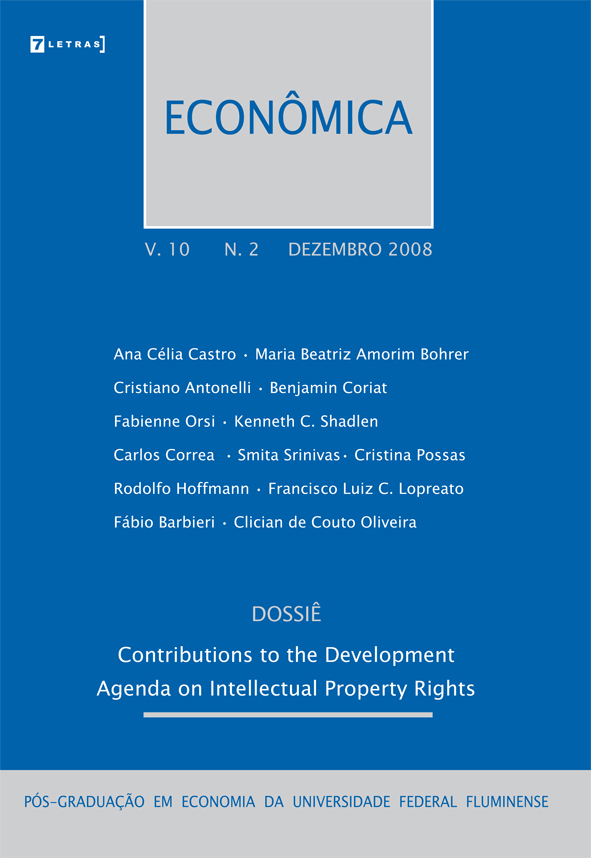Policy Space for Intellectual Property Management: Contrasting Multilateral and Regional-Bilateral Arrangements
DOI:
https://doi.org/10.22409/reuff.v10i2.34889Resumo
Global governance in intellectual property (IP) has changed dramaticallyin the last two decades. What was once principally an instrument of nationalpolicy is now increasingly subject to international disciplines. I contrast the newrestrictions placed on IP management that developing countries accept as partiesto the World Trade Organization’s Agreement on Trade-Related Aspects ofIntellectual Property Rights (TRIPS) with the constraints they face as membersof Regional and Bilateral Trade Agreements (RBTAs) with the United States. Ihighlight the areas where countries retain opportunities for policy innovationdespite their WTO obligations and provide examples of how some countries haveintroduced and retained measures that tailor IP management to local conditionsand needs, all while meeting the new TRIPS obligations. Moreover, I show howthese opportunities are circumscribed by RBTAs across all dimensions of patentpolicy, countries that are parties to such RBTAs have significantly less autonomy intheir management of IP. In sum, the proliferation of RBTAs presents the greatestthreat to countries’ capacities to manage IP for development objectives.Downloads
Downloads
Publicado
Edição
Seção
Licença
Autores que publicam nesta revista concordam com os seguintes termos:
a.Autores mantém os direitos autorais e concedem à revista o direito de primeira publicação, com o trabalho simultaneamente licenciado sob a Licença Creative Commons Attribution que permite o compartilhamento do trabalho com reconhecimento da autoria e publicação inicial nesta revista.
b.Autores têm autorização para assumir contratos adicionais separadamente, para distribuição não-exclusiva da versão do trabalho publicada nesta revista (ex.: publicar em repositório institucional ou como capítulo de livro), com reconhecimento de autoria e publicação inicial nesta revista.
c.Autores têm permissão e são estimulados a publicar e distribuir seu trabalho online (ex.: em repositórios institucionais ou na sua página pessoal) a qualquer ponto antes ou durante o processo editorial, já que isso pode gerar alterações produtivas, bem como aumentar o impacto e a citação do trabalho publicado (Veja O Efeito do Acesso Livre).

